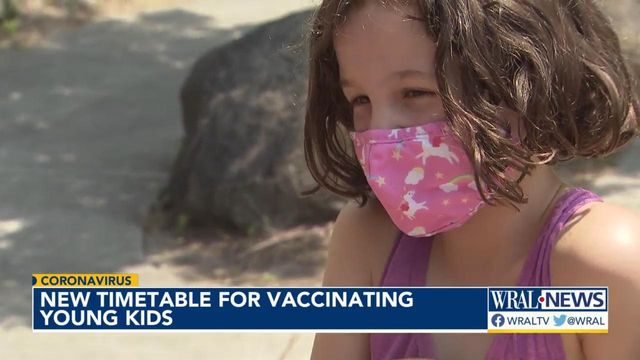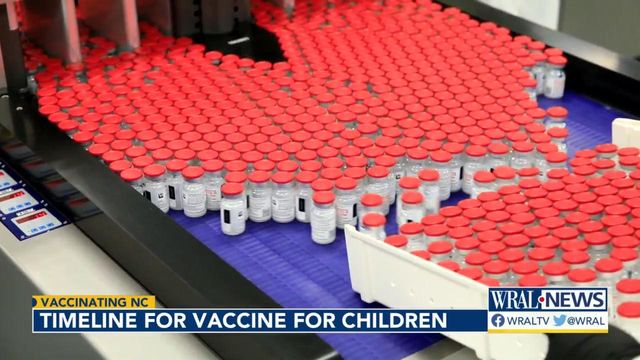Duke research shows COVID-19 antibodies in children lasts for months
The Food and Drug Administration said that children as young as five could be vaccinated against coronavirus sometime in the winter.
Posted — UpdatedTwo studies are in progress, one by Moderna and another by Pfizer, are looking into the vaccine in children as young as 6 months old. Officials say they expect that their vaccine could be approved for 5- to 11- year-olds sometime in the fall. Researchers are looking into how many doses of the vaccine children would need.
Doctors across the country are seeing COVID-19 patients that are younger and sicker than this time last year. Health officials continue to say that recent cases and deaths from the new variant are entirely preventable.
Researchers at Duke University found that kids who had mild or asymptomatic COVID-19 have strong antibodies months later.
Antibodies were detected in the majority of the children in the study four months after infection. Children's antibody response could be stronger than adults, the study suggests. This finding will have implications on vaccine research in children, Moody said.
"It definitely helps us to know that kids are not making a response that just disappears," he said. "That has a lot of implications for vaccine response, school return, all of the things that we are interested in for our children."
The study shows that children who were exposed to COVID but didn't show any symptoms have strong protection against the virus.
David Parker, who lives in Durham, is a father to two girls — 8 and10.
"We can’t wait. We’re very excited about it," he said. "We can’t wait until the FDA approves it for the little ones, too"
His two daughters, Elise and Ruby, are also excited to get their shot.
Ruby, 10, said she wants to get her vaccine because "it would help out the community."
"I think about it a lot, because it would open me up to going more places and seeing more people," she said. "I'm really social and COVID-19 has made me get depression which was really hard for me."
Summer camp vaccine spike
In Illinois, 85 teens and adults tested positive after going to a summer camp, and one young adult was hospitalized.
Vaccine for children will take time
The FDA wants to get shots into children's arms as soon as possible. But officials are prioritizing safety, which could impact the time it will take to get the vaccines distributed.
Moody said that vaccine trials for children are taking much longer than the previous trials for adults.
"One of the things to remember about the earlier adult trials is that the case rates in the U.S. were so high, at that point, it was really easy to see a signal," he said. "Right now we have lower transmission rates which means in order to see the signal that you want to show that vaccines are effective, you do have to likely run the studies a little bit longer."
Related Topics
• Credits
Copyright 2024 by Capitol Broadcasting Company. All rights reserved. This material may not be published, broadcast, rewritten or redistributed.






